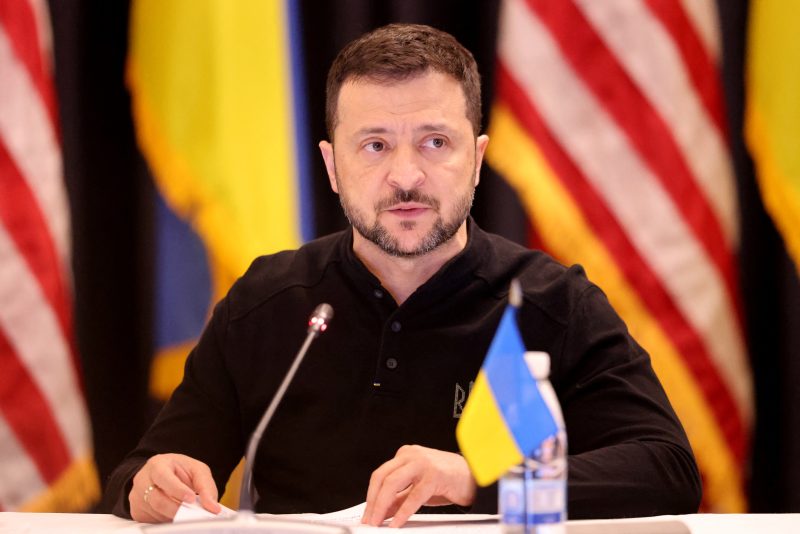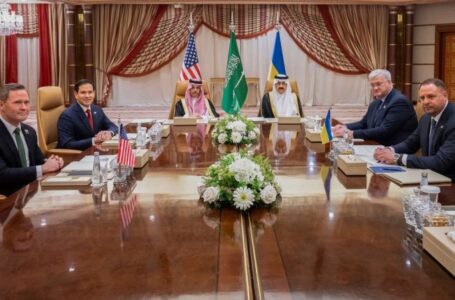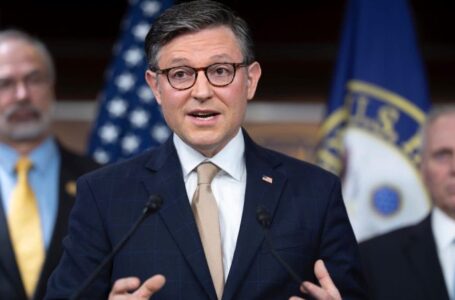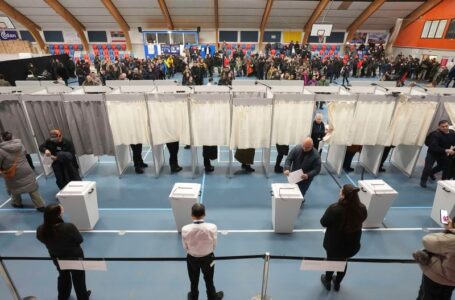Ukraine’s Zelensky sharpens appeal to end restrictions on weapons


Ukrainian President Volodymyr Zelensky urged Western nations on Friday to lift restrictions on the use of donated weapons against Russian territory, telling military and defense leaders gathered in Germany that it was “wrong” to tie his country’s hands in battling Russia’s forces.
Zelensky, in his first in-person appearance at a U.S.-led forum of nations providing arms to Ukraine, expressed gratitude for ongoing military support but said more is needed to help end the protracted conflict with Russia.
“We think it is wrong that there are such steps,” he said. “We need to have this long-range capability, not only on the occupied territory of Ukraine but also on the Russia territory, yes, so that Russia is motivated to seek peace.”
Zelensky’s appeal, delivered at a U.S. military base in Germany hosting the meeting of the Ukraine Defense Contact Group, underscores the stakes of the current battlefield moment for Kyiv. Ukraine is struggling to contain Russian progress in the east while its forces also advance deeper into Russia itself.
The United States, Ukraine’s largest single provider of weapons, has supplied billions of dollars worth of arms since the war erupted in February 2022, but Washington has so far refused to lift restrictions on the use of longer-range arms such as the Army Tactical Missile System (ATACMS) to strike deep inside Russia. The Biden administration currently permits Ukraine to use U.S.-provided missiles only in limited cross-border strikes.
While Washington has repeatedly set aside concerns about escalation with nuclear-armed Russia and eventually yielded to Ukrainian requests related to weapons access or use, it is unclear when or if it will do so this time.
U.S. officials have long said they believe that allowing Ukraine to use ATACMS to hit sites far inside Russia would not alter the overall military balance because Russia can simply move launchers or other potential targets farther out of range.
John Kirby, a spokesman for the White House National Security Council, told reporters on Thursday ahead of the meeting in Germany that administration policy has not changed.
“We are, as we have been every day … having a conversation with our Ukrainian counterparts about what they need, what’s going on on the battlefield, and what support they require to continue to have success,” he said.
Speaking alongside Defense Secretary Lloyd Austin, who convened Friday’s meeting at Ramstein Air Base, Zelensky said his forces have managed to outfight Russia in many instances with “a minimum of weaponry.”
“But we need more weapons to drive Russian forces off our land and especially in the Donetsk region,” he said.
Zelensky cited the fact that Russian President Vladimir Putin has appeared to prioritize his military’s push to seize the Ukrainian city of Pokrovsk over tackling Ukrainian forces in Russia’s Kursk region.
The incursion into Russia, where Ukrainian forces have seized a modest amount of territory in recent weeks, came as a surprise to many in the West and left some of Ukraine’s backers wondering how the offensive will affect the course of the war.
Putin “doesn’t care about Russian land and people. He just wants to grab as much land and as many of our cities as possible,” Zelensky said.
The Ukrainian leader also called for prompt delivery of promised arms packages and said more air defense weapons are needed to protect Ukrainians. A strike on the central Ukrainian city of Poltava this week demonstrated Ukraine’s vulnerability, killing more than 50 people.
“The world has enough air defense systems to ensure that Russian terror does not have results,” he said.
Austin, speaking after Zelensky at the beginning of the contact group discussions, said the United States shares his sense of urgency to prevail on the battlefield, but he did not address Zelensky’s comments about U.S. policy.
“We are laser-focused on Ukraine’s needs, including air defense, fires and armor,” he said.











